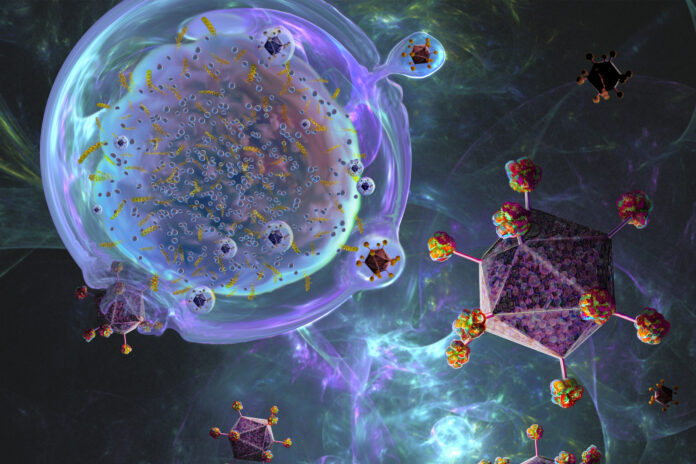
A team of researchers at the Montefiore Einstein Comprehensive Cancer Center (MECCC) have demonstrated that altering two of the four key proteins in chimeric antigen receptors (CARs) improved their ability to attack and shrink glioblastoma, pancreatic, and lung tumors in mouse models of these cancers. The new approach, reported in Science Advances, has the potential for this form of immunotherapy, already highly successful in treating blood cancer, to become an effective tool against solid tumors.
“CAR-T cell therapy has revolutionized the treatment of blood cancers such as leukemia and lymphoma but hasn’t worked well against solid tumors,” said senior author Xingxing Zang, PhD, a member of MECCC and a professor at Albert Einstein College of Medicine. “We found that our changes to standard CAR-T cell therapy can significantly boost its effectiveness against solid tumors, including often-fatal pancreatic cancer and glioblastomas.”
For this latest work, the team in the Zang lab created five CAR-T therapies that were then tested on mice implanted with several different types of solid tumors. All five of the CAR-T therapies developed by the team used the same targeting protein, a monoclonal antibody that binds to B7-H3, a cancer cell antigen that is expressed in most solid tumors and the blood vessels that feed the tumor.
Zang’s previous work has focused on the B7 family of proteins and their possible role in cancer. Prior work showed that B7 proteins dampen the immune response by interacting with T lymphocytes. Further, he has shown that two members of the B7 family, B7x and B7-H3, are overexpressed in human cancers and also inhibit the function of T lymphocytes, which allows cancer cells to evade anticancer immunity.
All five of the CAR-T therapies the lab designed used the same targeting protein: B7-H3.
“We wanted our CARs to not only attach T cells to solid tumors but also—by binding specifically to B7-H3—to prevent B7-H3 from interfering with the T cells’ ability to attack and destroy cancer cells and their blood vessels,” said Zang.
But developing therapies that bind CAR-T cells to tumor cells is only one aspect of an effective therapy. In order to attack a tumor, CAR-T cell therapies also include a costimulatory protein that activates the T cells to attack the tumor. Of the five different CAR-T therapies Zang and colleagues engineered, four used previously used costimulatory proteins. The fifth, however, included a protein called TMIGD2, which activates T cells. Based on this, Zang later hypothesized that incorporating this protein into CAR-T cells might enable them to better target solid tumors.
“Factors such as low-oxygen levels and immune checkpoints inside solid tumors make for a hostile microenvironment that can strongly suppress immune attack by T cells—which also have trouble penetrating solid tumors’ dense connective tissue network,” Zang noted. “It seemed possible that using TMIGD2 as a costimulatory protein could give CAR-T cells the activation boost they need to reach cancer cells and persist within solid tumors.”
After testing all five engineered CAR-T cell therapies on mice bearing human glioblastoma, pancreatic, and lung cancer tumors, the investigators showed that while all were equally likely to bind to cancer cells, the most effective of the five was the one that contained the TMIGD2 protein.
Zang calls this newly engineered therapy TOP (TMIGD2 Optimized Potent/Persistent) CAR. When treated with TOP CAR, seven of the nine mice with glioblastoma survived, compared with only three of nine surviving from the best performing of the other four CAR-T therapies. TOP CAR also showed it was safer than the other potential therapies.
With the success of this early research on TOP CAR, Zang intends to develop a therapy development platform that will simultaneously target B7-H3 to provide the binding capability of any new solid tumor-targeted therapy, while also incorporating a range of other tumor antigens selected to specifically attack certain types of tumors.













